The Ultimate Beginner Guide For The First Time Pet Bird Owner
Last updated: December 9, 2023
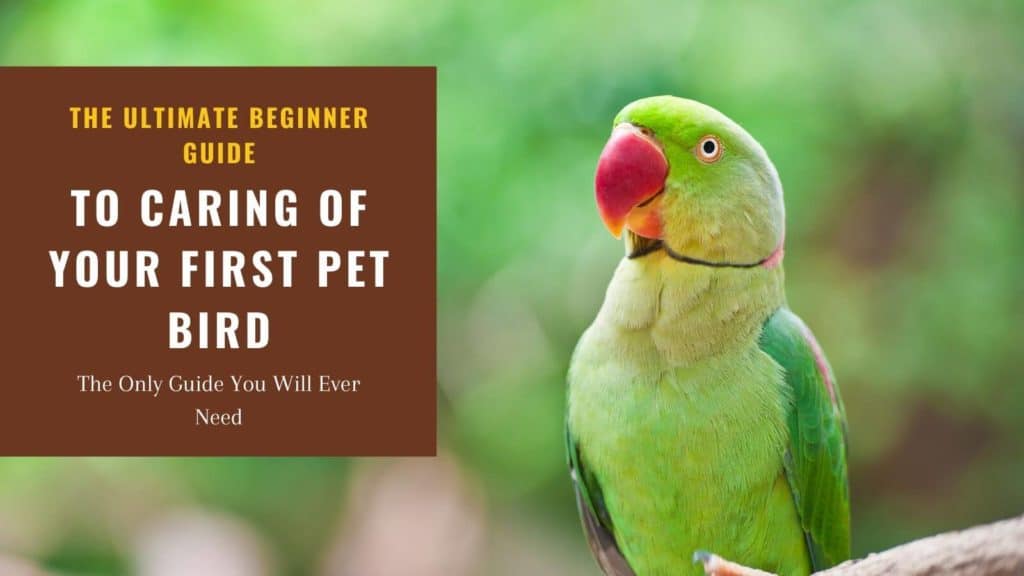
Summary
- Things to consider before getting a bird include their potential noise, messiness, need for socialization, specialized diet, and chewing tendencies. Selecting a bird based on appearance, desired companionship, personality, and lifespan is advised.
- Parrots like cockatiels, parakeets, and Amazons are recommended as best pet birds for beginners due to their intelligence, bonding ability, and longevity.
- A basic pet bird checklist covers essentials like an appropriately sized cage, perches, toys, litter, food dishes, treats, and cleaning supplies.
- Proper bird housing includes a nontoxic, sturdy cage placed securely away from hazards. Cage location should allow for family interaction and sunlight while minimizing external distractions.
- A bird's diet should offer balance, variety and proper nutrition. Pellets, seeds, fruits and veggies should comprise most of a diet. Foods to avoid include avocados, salt, onions and chocolate.
- FAQs cover topics like easiest birds for beginners (finches, parakeets), preventing boredom with toys and interaction, addressing concerns that cage birds are cruel, parrot longevity of 15-80 years, and birds' capacity to form bonds and show affection to owners.
Are you an avid bird lover who enjoys exploring varied facets of these colorful winged creatures? These unique wild creatures can become one of the best companions humans can have. Won't you love to wake up to the symphonic chirping of these tiny creatures every day? Well, before that, it is imperative to gain basic knowledge about birds and how they live?
Various ornithologists believe that birds are one of the greatest gifts of nature that strikes an impeccable balance in the ecosystem. With a myriad of vivid colors, they fill nature with delight. From soaring high above to peeking from a tree, birds are a delight to watch. Marveling their gift to fly or observing their interesting behavioral pattern or hearing them sing can bring solace to your mind. With more than 10,000 varied bird species spanning around the world, it is marvelous to see that many humans embark on their journey of becoming a birder.
Although there are a few blogs out there, none of them cover the range of animals from fish, birds, and reptiles to cats and dogs like we do. So, if you are looking for information or reviews of pet products, whether your pet is a dog, cat, fish, bird, or reptile, then this is the site for you.
So, let's explore the Best Pet Birds For Beginners and learn more about them!
- 1) Are birds good pets?
- 2) Choosing A Pet Bird: What Species Match My Needs
- 3) Why parrots are The Best Pet Birds For Beginners?
- 4) Most Popular Parrots Breeds
- 5) Things to consider before getting a bird
- 6) Basic pet bird checklist
- 7) Your bird's housing
- 8) Pet birds nutrition
- 9) Frequently Asked Questions
- 10) Conclusion
Are birds good pets?
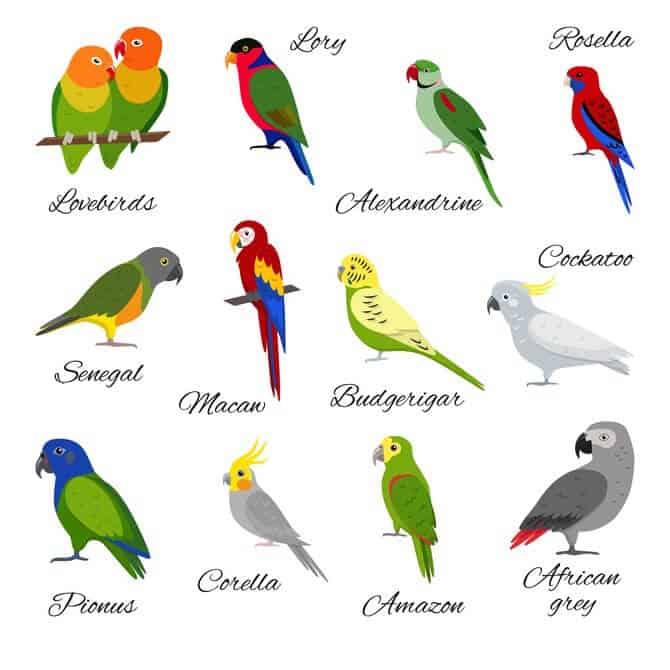
Birds are one of the most versatile species in terms of behavioral patterns and colors. They make excellent pets for humans.
- As beginners, birds are easy to care for and can be placed in a cage while you are away or busy.
- With an above-average intelligence level, birds are trained with ease, and they are as excited to learn.
- Quick nail trim and plain showers are all that a bird grooming requires.
- From fresh fruits, veggies, to high-quality pelleted diet bird feeding is hassle-free
- Birds are attractive as they make the home energetic with their vibrant colors and can become a long-lived companion for humans.
- A small, beautiful, and cozy birdcage is all you need to store them.
Choosing A Pet Bird: What Species Match My Needs
Here are certain aspects we recommend you ponder upon while choosing a pet bird.
- Appearance: The appearance of a bird plays a vital role when you choose a pet to bring home. Because we humans love to cuddle and pamper our pets, and if they don't appeal to our eyes and bring out the softer side of our nature, keeping a pet will have no meaning. So, it is very important to choose a bird which you like in all aspects, be it the color, size, the breed so on.
- Companionship: Birds can become your companion for a lifetime due to their prolonged lifespan, especially parrots. So, while selecting a bird, you can look for certain bird breeds that are adaptable to new surroundings and can be trained easily.
- Personality: Personality traits vary according to the bird's breed. Parakeets as pets are friendly and easy to tame while cockatiels are cheerful. So, it recommended that small, medium and large-sized parrots form best pet birds for beginners due to their unique personalities.
- Life span: The life span of a bird is also a deciding factor. Parakeets as pets have a life span of 6-18 years, while cockatiels can live for more than 30 years. So, choose a bird breed that can be your lifetime companion.
Check Also: How Much Does a Parrot Cost?
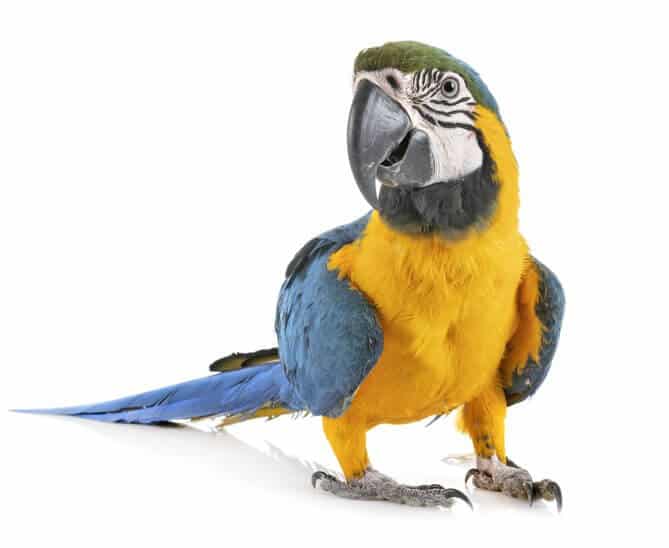
Why parrots are The Best Pet Birds For Beginners?
Parrots have a unique ability to sing, speak, and interact with their owner and hence have become the best pet birds for beginners.
- This bird breed has a higher intelligence level than most primates, and on average, parrots have a 3-4-year-old kid's IQ level.
- They have excellent skills to master large vocabularies, learn to count numbers, and speak full-length sentences with comprehensions that entice the owners.
- Besides, parrots can become the best companion with its high longevity and bonding capacities.
- It is a sophisticated and complex bird breed that can live up to 80 years.
So while searching for bird pets, we recommend you search for the various types of parrots which can become the best pet birds for beginners.
Most Popular Parrots Breeds

Parrots are not pets; they are your lifetime friends. There are ample types of parrots available in the pet market.
- Lovebirds/Cockatiels: With a life span of 8-15 years, cockatiels, Lovebirds, and parakeets as pets are an excellent choice. For prospective and current cockatiel owners, it's beneficial to learn about the average life expectancy of cockatiels as pets.
- African Grey parrot: is an intelligent parrot species that require daily interaction, socializing, and consistent training.
- Amazon Parrots: Adequate training can make Amazon Parrots one of the best pets for beginners as they can speak and live up to 8-9 years.
- Caïque: As a great family pet, Caïque is an excellent choice as it is intelligent, bold, and has an attractive personality trait.
- Cockatoos: They are loud, smart, loving, and busy parrot breeds best suited for experienced owners.
- Budgerigars: These are social and flock parrot breeds that demand attention.
- Conures: Easily trained and fun-loving Conures are the best pet birds for beginners.
- Macaws: They are the most spectacular parrot breed. Most bird lovers consider them the Best Pet Birds For Beginners.
Things to consider before getting a bird
Before planning to have a bird pet, here are certain aspects you must focus on.
- Birds tend to be noisy : Some bird breeds have loud and shrill voices. So, it is best to select soft-spoken birds like various types of parrots as pets. Parakeets as pets can mimic the sound, sing, and even talk.
- Birds tend to be messy: Unlike most pets, birds are messy and can waste a substantial amount of food. Hence it is recommended to look for birds that are less messy and can be trained to become organized.
- Birds require constant socialization: Birds demand constant attention. So while shortlisting the types of pet birds, try to go for the ones who are easy to tame, can be trained, and ready to socialize.
- Birds need a specialized diet: Birds are comparatively low maintenance than other pets, but even they require certain attention. So, it is best to select birds that can accommodate all diet types and don't put an extra strain on the budget.
- Birds tend to chew: Every bird has an innate ability to chew. So it is imperative to bring home such bird breeds that are easy to handle. Also, owners must be cautious while selecting the birdcage as the toxic metal of plastic can be fatal for your pet.
Basic pet bird checklist
Birds can become a wonderful and colorful addition to your family, but as an owner, you must be prepared with adequate equipment to meet the needs of your new feathered friend. Everything essential to maintain the health and hygiene of the bird by finding the right-sized cage, cage stand, food, bird toys, and getting the right vet. Make sure to follow Pet Supplies Unlimited for more information.
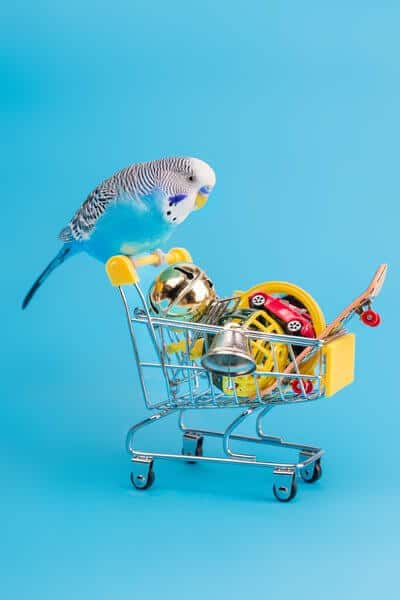
Cage & Cage Stand
The bird's cage has to be sturdy and made of non-toxic material so that there are no sharp ages that could harm your pet. The size of the cage will vary according to the proportion of the bird's breed that you are willing to bring home. However, the size must be adequate for birds to extend wings and long tails. A cage stand supports the cage and prevents the risk of falls and trips that can harm the bird. You can even plan to buy a movable stand that will give your bird a change of scenery.
Related: Best Bird Cages
Check Also: Best Cages for African Grey Parrots
Nesting Material
Whether you plan on breeding your bird or not, nesting material gives a creative look to a bird's cage. It is in a bird's instinct to put nesting materials in their hideout. So you can arrange for small pieces of twigs, dead leaves, grass, feathers, yarn, thread, etc. as the basic nesting material for your new feathered friend. If you plan on breeding them, spring is the ideal time for attracting birds with nesting material as they learn about courtship behavior, nest building, and raising their young ones during this time.
Toys
With a variety of toys, a bird quickly devolves a cheerful and playful behavioral pattern. It is essential to give the birds adequate toys such as rawhide, soft white pine, pinecone, or leather chew (specifically made for pets) to help them stay active and develop a more energetic and healthier beak. Besides, you can also place bells, swings, and other bird toys and swap their places to keep the bird engaged. However, avoid giving cedar, balsa wood, redwood, or pressure-treated pines to them.
Related: Best African Grey Parrot Toys
Litter, Bedding, and Liners
Regular cleaning of the cage is essential to maintain the health and hygiene of the bird. So, it is necessary to have good liners, preferably paper cage liners in the cage that will help with easy cleaning. Proper bedding or liner will absorb the spilled water and waste and keep the cage clean and minimize the smell. It is preferable to use litters made of wood, paper, walnut shells, or corn cob.
Hideaway
At times, consistently displaying to humans and other pets can become boring for the birds. So a simplistic hideaway made of the nest box, paper, or towel can become the easy escape route for your bird to get some 'Me Time.' Whenever birds feel stressed, anxious, or threatened, they can retreat to a private hideaway, a small and cozy cave-like structure giving away the vibes of comfort.
Cleaning Supplies
Before planning to pet birds, it is necessary to have all the cleaning supplies handy at home for regular usage. For this, the bird owner must have an old toothbrush, sponges, and appropriate cleaning materials like vinegar, enzyme-based cleaners, bleach, etc., that will help clean the cage. Cleaning supplies also help in maintaining hygienic perches and food dishes for the bird.
Food Dish
For having a healthy and active bird as a pet, beginners must take adequate care of the nutritious diet offered to the birds. The food they eat can consist of a bowl of seeds, fresh fruits, and vegetables, etc. but besides a nutritious diet, one must as well ponder on the food dish in which the food is offered. The food dish has to be of an appropriate size, which is sturdy and hard to tip and can withstand the constant bird's beaks and talons.
Check Also: Best Squirrel Proof Bird Feeder
Cage Cover
Birds also need a good night's sleep like humans. So, a cage cover can transform your birdcage into a complete hideaway and let your feathered friend sleep in peace. It also helps in reducing distractions, noises, or objects that can scare the birds. A proper cage cover must be a size that aptly fits your bird's cage size and shape and will not slip easily.
Treats
A change in a diet once in a while can entice the birds and enhance their eating habits. Instead of offering the same diet, introduce occasional treats with nutritious fruits, vegetables, seed sticks, nuts, and other items. A variety of food will also help the bird develop a healthier beak. But it is imperative to note the type of treat you plan on giving to your pet as some veggies and fruits can be toxic to certain bird breeds.
Perches
Every bird owner desires to see interesting activities in their birds; one amongst them is climbing. So, it is necessary to have perches placed at various heights that boost the bird's confidence and encourage them to climb. Besides, it also offers the bird a place to roost and stand. Bird perches are available both in wooden and rope variants and should have the exact diameter as that of the bird's feet.
Waterer
Water is essential for both humans and animals, and your bird pet is no exception. Birds need a continuous serving of clean and freshwater. So, bird owners can place a bottle of freshwater outside the cage as it has fewer chances of getting contaminated. However, some types of pet birds prefer to drink water from an open dish or bowl. In that case, it is necessary to clean the container at subsequent intervals to maintain a bird's health and hygiene.
Travel Cage
As much as you like the vibrant colored chirping animal in your house, a bird will require an occasional visit to a vet or sometimes take a stroll to get accustomed to a change of scenery. In that case, a sturdy and handy travel cage is necessary for the bird to fit comfortably. With a travel cage, you can even embark on an occasional trip with your companion (bird pet) by your side.
Your bird's housing
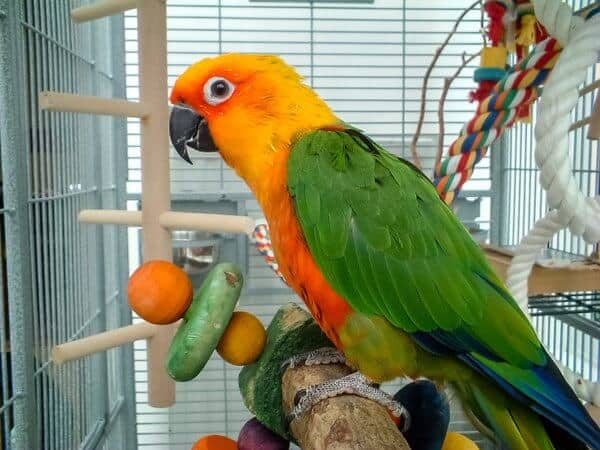
A bird's abode must be safe, secure, spacious, and durable to make them comfortable. The cage must have small gaps between the bars to prevent escape and injury.
- The place should be devoid of any hazardous substances like wires, plants, and cords.
- It should be durable to survive the beaker's constant efforts.
- The birdcage should be secured to ward off outward threats and make the bird feel comfortable.
- It should have adequate space for the birds to flap their wings even after placing perches, toys, food dishes, etc.
- It must be attractive enough for the bird to feel at home.
How to Choose the Best Cage for Your Bird
An appropriate living condition profoundly impacts on a bird's physical and behavioral traits. A right abode is, therefore, necessary to ensure the psychological and physical well-being of birds.
- Selecting the right cage size: A birdcage should be made of non-toxic but should be made of sturdy material with proportional bar spacing. It must have adequate space for tall birds with long tails and wide birds to stretch their wings. Finches are of the best pet birds which can be kept in flocks and require a larger cage to offer them adequate space.
- Getting apt furniture: Bird's furniture includes wide and shallow food and water bowls and perches made of natural wood devoid of any parasite and should be clean.
- Easy to clean: It is imperative to buy a birdcage that can be cleaned daily to maintain the birds' hygiene and make the cage look attractive with toys and perches.
Where To Place Your Bird's Cage
Birds are sensitive to smells and fumes. Besides, it must be kept out of reach from other pets and small children and occasionally contact with fresh air and sunlight. Hence finding the right location is imperative. The cage must be placed at a level at the chest level, as too high or low can make them feel anxious. It is also imperative to keep the birdcage at a place where they can easily interact with all the family members and get enough attention from human interaction.
It is also important to place the cage with one side against the wall as it makes them feel secure. However, a cage must not be placed directly in front of the windows as external factors like a storm, other pets, and temperature can scare them. Birds must be kept away from heat changing places, kitchen, bathroom, and poisonous places, which include harmful plants, scented candles, or room fresheners.
Your bird's cage accessories
An intrinsic bird cage décor filled with birdcage accessories, toys, and perches, will keep you, feathered friend, active, and healthy.
Perches
To avoid foot infection, a birdcage must have clean perches made of wood, rope, sand, concrete, or orthopedic. The perch diameter must be of the exact size of a bird's feet to make them feel comfortable.
Toys
Parakeets as pets are constantly active, and with an abundance of bird toys, they can find their way of self-engagement. Toy accessories include wooden toys and various types of parrots like to chew, rope toys, puzzle pieces, small huts, plush, preening, foot, and plastic toys.Cage Cover
An apt cage cover can aid in the peaceful sleep of the bird and provide a secure hideaway from external threats.Cups
Stainless steel cups or plastic dishes are necessary to give food and water to the birds and must be cleaned every day.
Pet birds nutrition
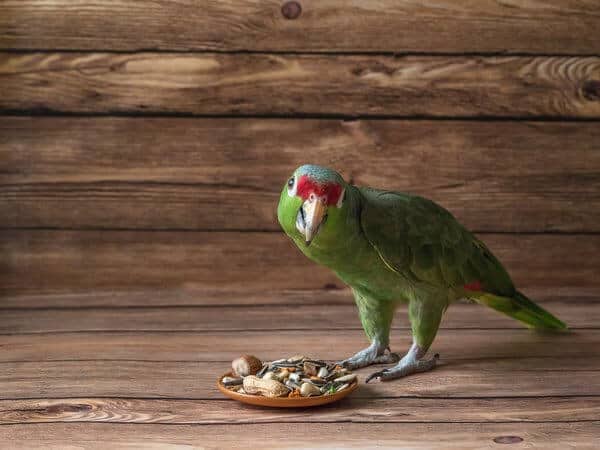
A balanced diet with adequate nutrition is imperative to bolster the psychological and physical growth of the birds. Although nutrition varies in as per the types of pet birds, in general, all of them require a balanced diet that offers them all the nutritional aspects. In general, it is believed that only a bowl of seeds is sufficient for the birds. But studies reveal that a bird can receive complete dietary nutrition from a formulated diet comprising a variety of fruits, vegetables, supplements, pellets, and nutritional seeds. With the right amount of nutrition, you can witness a playful side of your bird. So, here is a guide to proper nutrition for birds.
Related: Best Parrot Food
Balance and Variety
A balanced diet with nutritious foods is a necessity to ensure the physical wellbeing of the bird. It is imperative to note that a seed-only diet doesn't offer all the nutrition to a bird. Therefore, seeds are compliments with nutritious vegetables and fruits that provide adequate vitamins and minerals. It is ideal for bringing a variety in your pet's daily diet by including deep-colored fruits like mango, kiwi, and papaya. You can occasionally add cooked legumes, quinoa, or cooked brown rice in their diet. Parakeets as pets require a balanced diet from the beginning for improving their mental and physical health. However, dietary differences persist amongst various types of pet birds. Besides, you can also give supplements and include a formulated diet in their diet chart. A creative diet often entices the birds as they decide based on appearance, taste, and texture, whether to eat the food or not.
Primary Diet
Nutritional needs vary according to the types of pet birds a bird owner desires to have at home. For its primary diet, a plateful of pellets complemented with nutritional fruits, vegetables, and seeds aids in the birds' enhanced mental and physical development. The pellet diet comprises sufficient amounts of grains, healthy ingredients, veggies, and fruits, which are scientifically proven to provide the right amount of vitamins, proteins, amino acids, minerals, and fats, required for their development. Some of the best veggies and fruits for your feathered friend include zucchini, cucumber, spinach, corn, pears, apples, apricots, mangoes, grapefruit, oranges, etc. Even seed-eating bird breeds don't incur enough nutrition by only having bowls of seeds. For these types of pet birds, a formulated primary diet is of utmost necessity to channel all the right nutrition for their behavioral and physical health.
Foods to avoid
Although you may like to try giving a variety of diet to your bird, certain foods must be avoided as it directly impacts the bird's health. A high amount of junk foods such as doughnuts, chips, etc. are toxic to a bird's health. Among the other foods to avoid include avocados, alcohol, caffeine, table salt, onion, mushroom, apple seeds, fruit pits, chocolates, and persimmons. While keeping parakeets as pets or other types of parrots is best to avoid overconsumption of grit as it can impact their digestive system. It is best to avoid heavy digestive and bulky food as they are digested poorly, thereby depriving the bird of adequate nutrition. Even foods having high cholesterol must be avoided as it results in enlargement of the liver, oily feathers, and prolonged consumption can cause hardening of the arteries. Hence it is best to avoid such toxic foods.
Frequently Asked Questions
A vibrant colored bird can enhance the overall appearance of the house with its vivid color, melodious sound, and human interaction ability. But before investing in bringing home a feathered friend, pay attention to certain aspects, such as deciding their abode and finding out the best diet is necessary. Besides, there are certain questions that most bird owners ask. So let us have a look.
What is the easiest bird to keep as a pet?
Among the millions of birds, flinches are inexpensive and the easiest to keep as pets. It is a perfect type of bird breed for beginners and children and it requires minimal human interaction. Apart from these, bird owners can keep parakeets as pets as they are the world's second-smallest type of parrot. It is a playful bird and can imitate speech with a melodious tone. It is an interactive bird that will keep children entertained. Bird owners can even opt for canary as it fits the bill as a starter bird. This bird has an ability of self-entertainment without human interaction so that you can witness a variety of behavioral instincts with a canary. Apart from these other easy-to-pet birds include cockatiels, peach-faced lovebirds, Parrotlets, Hyacinth Macaws, Quaker Parakeets, Amazon parrots, and Pionus Parrots.
Do birds get bored in cages?
Birds are intelligent species who demand attention and constant human interaction. They can get bored if there is less socialization with the outside world. The level of boredom and its alternative varies according to the types of pet birds the owner has, as for most of the types of parrots, they demand adequate attention, training, and constant interaction to be able to inculcate the ability to imitate speech and vocabulary. When they fail to gain attention from you, they will start increasing their noise-making and calling tone to divert attention. If they fail, they will begin to chew a chew-able object in the cage and eventually destroy them. In the wild, birds interact with their natural environment; hence they don't ponder much on human interaction. But for a caged bird interaction and socialization is imperative as it is getting accustomed to new surroundings.
Is it cruel to have a pet bird?
Often as a bird owner, you will encounter a common question to set the bird free: a cage is confinement for them while they belong to the open skies. Indeed, it is true for the wild birds that live in a different habitat, but for the various types of pet birds, it is a misconception. It is seen that pet birds lack the skills of surviving in a wild habitat as there are extremities of temperature and other predators lurking for its prey. Besides, pet birds are intelligent and can form an unbreakable bond with humans. They learn to sing, count numbers, and frame sentences like humans. It helps in inculcating new behavioral traits in the birds. Furthermore, pet birds can be happy if they are in constant interaction, occasional visits to have sunlight and fresh air or have plenty of toys at their disposal.
How long do parrots live?
Among the various types of pet birds, the preferred type is a parrot, as they are cheerful and have a long life. They are the longest living amongst the bird breeds and can become your companion for a lifetime. Amazon parrots and cockatiels have a lifespan of 75 years, while parakeets as pets can be your friend for 15-25 years. In the wild, these small birds have a shorter life span because they continuously fear predators and hunt for food. Besides, they tend to reproduce quickly in fear of getting extinct by the predators, which drains out their metabolic resources, and they die soon. But in the absence of a predator, a parrot can have a prolonged life span with the furthest up to 80 -100 years. Hence this is the best pet bird for beginners and experienced owners.
Do pet birds love their owners?
Birds can form a strange bond with their owner, although there is no scientific proof that whether they can love, they do have an emotional relationship. They cannot speak like humans but show their emotions with their behavior. Several pet birds can connect with humans more easily than with other birds. With their constant craving for attention, they portray the importance the owner holds in their life. Besides, their ability to speak and learn new things from social interaction shows how they reciprocate the love that the owner shows. Lack of communication makes them feel dejected and impacts their mental and physical health. So, it is necessary for owners to love their pets so that they get the same affection in return.
Conclusion
For a beginner, planning to keep a pet, especially a bird, can seem like a challenge, but in reality, birds are the most comfortable pets. These vibrant-colored species are cheerful and playful and have a myriad range of colors and sizes. While some can talk like you speak, others can fill your heart with their melodious voice. Birds are usually a morning person, so keeping them at home can bring in life in their day to day activities with the bird’s constant chirping. Besides, birds are friendly and can become a lifetime companion, especially various types of parrots who have a prolonged life span. So, one can conclude that birds are the best pets one can have at home. Furthermore, it has fewer maintenance costs, easy to handle, and can keep children and senior citizens entertained at home.

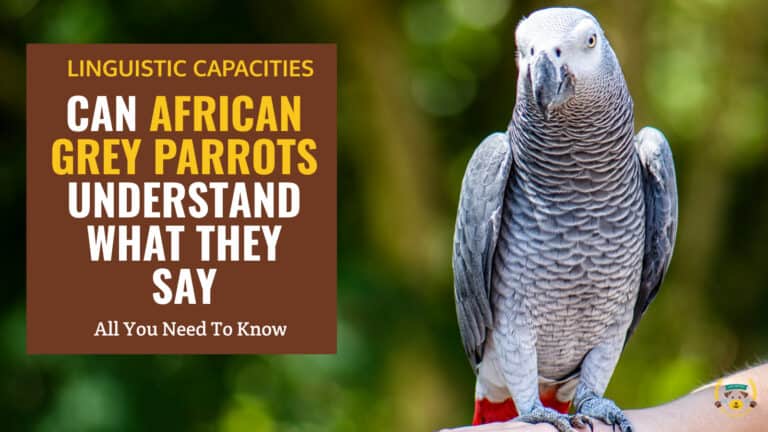
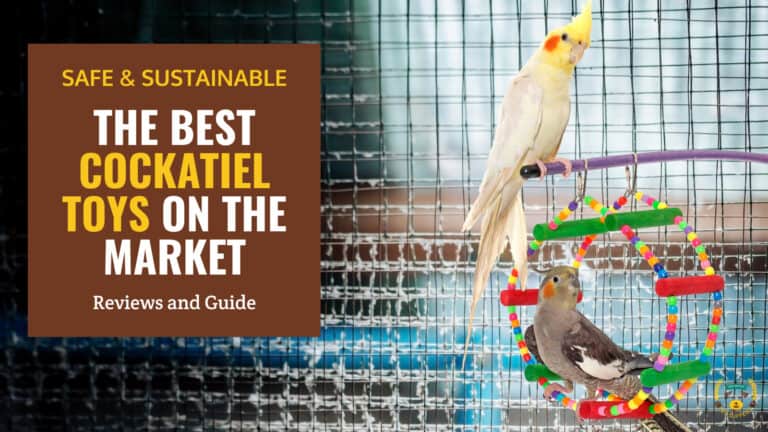
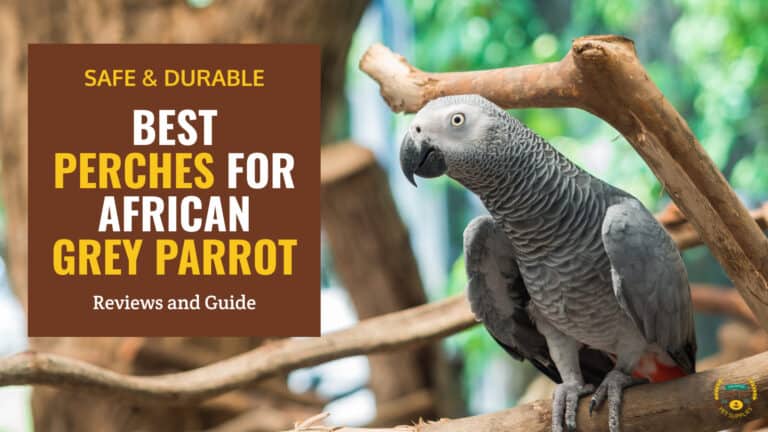
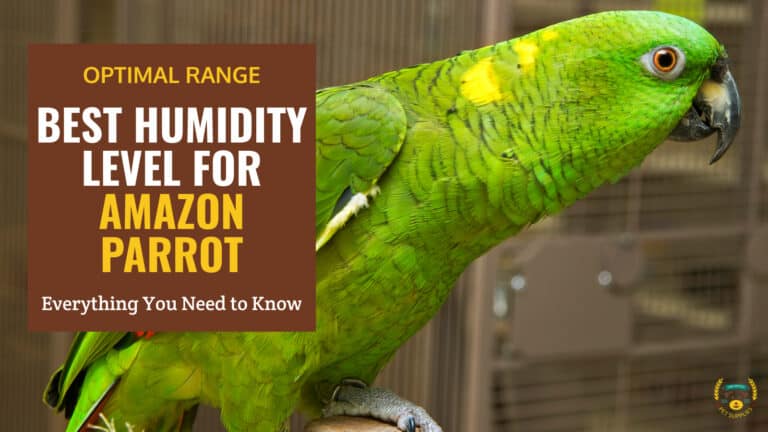
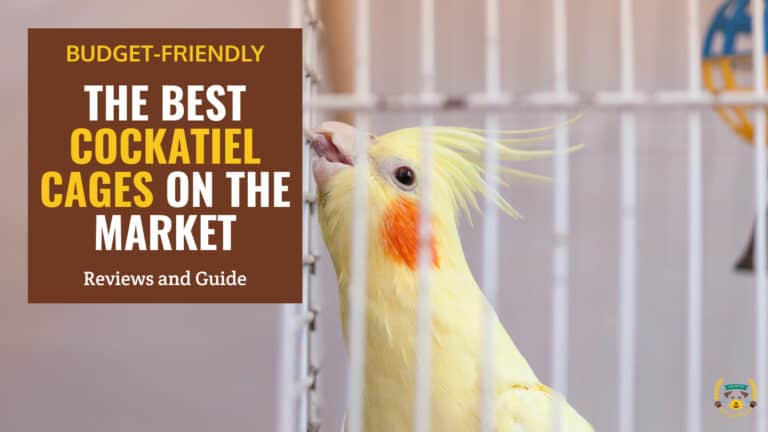
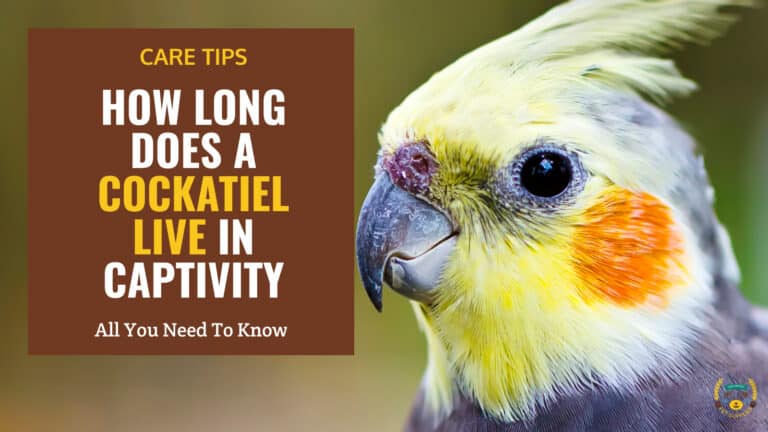
Thanks for the reminder that it's important for pet birds to have somewhere to climb on. I'm planning to start buying supplies soon in preparation to adopting a small bird. Perhaps I should also buy natural climbing mat for birds to make sure that I have enough accessories to put in the cage and the areas outside it.
I ran a parrot rescue for 20 years, went to vet school, and still care for a blue & gold macaw companion. Of the parrots shown in the picture, I highly recommend against a number of these species as a beginner or first bird. The following type of bird are popular because of personality, color, and/or speaking ability, but they are all too challenging for a beginner. Do NOT start with one of these birds: Macaws, Cockatoos, Amazons, and African Greys. For example, despite decades of bird handling and training and being connected for 20+ years, my blue & gold macaw still attacks me in certain situations - resulting in two visits to urgent care this year to sew up the gashes because of his massive, powerful beak, with the bite strength of the most powerful breeds of guard dogs. In the rescue, I was badly bitten by more than one African Grey and Amazon when not paying enough attention when handling them. An Amazon flew across the room 3x to attack my face because he was attached to my rescue partner and thus attacked anyone else.
Just a few examples + you can find many other sources online that give the same advice. My main advice: Do your homework and thoroughly research the species of bird you're considering making your companion - many of them, FOR LIFE (and in the case of some species, multiple generations of companion/caregivers)! Also make sure your landlord, neighbors, property manager like HOA, condo association, apartment manager... are ok with the amount and volume of noise the bird you're considering is likely to make. Many birds in parrot rescues were given up by their caregivers due to the noise that either they or their dwelling management couldn't tolerate. I've trained my macaw not to scream excessively but when he does, he scares everyone around him and can be heard over a block away! And he's the most mellow macaw I and everyone else who meets him has ever met. Wait to get the more challenging species until you've logged some experience with easier ones. You can do it by volunteering at a bird rescue, handling a friend or relative's bird(s), or caring for one or more yourself.
One more thing to consider in getting a companion bird - lifespan. These are the correct expected lifespans of different types of parrots. Like humans, companion bird expected lifetimes keep increasing as their food, care, and vet care improve. A rule of thumb (that's not always accurate, of course, but is better than no information at all): the larger the parrot, the longer their life expectancy. The upper end of these lifespan estimates are based on good genetics and above all else, high quality food and care. I can't list them all, but these are some good examples of what to expect.
> Finch: 5-9 years
> Budgie, Cockatiel: 5-20 years
> Conure, Pionus, Lorikeet: 10-30 yrs
> Caique, Senegal, Eclectus: 20-50+ yrs
> Amazon, African Grey: 30-60+ yrs
> Cockatoo: 40-70+ yrs
> Macaw: 50-80+ yrs
Of course, there are exceptions in both directions. For example, I have personally encountered an Amazon, African Grey, and Cockatoo over 80 years old. And I've known people who have lost the same species at under age 25, despite good care. Like every other living being, genetics plays as big a role as care and environment do.